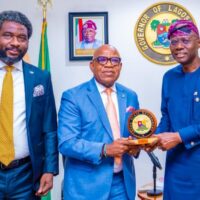The Fuel Subsidy Conundrum in Nigeria: From Genesis to Solution
The Fuel Subsidy Conundrum in Nigeria: From Genesis to Solution
Thursday, September 5, 2024 12:31 pm
By Niyi Fagbuaro
I promised to write this on request to advance my position on the reintroduction of a well structurized fuel subsidy.
I want to put it here that it was callous of the Federal Government of Nigeria to absolutely remove the fuel subsidy in the first place.
Yes, removing it temporarily for restructuring could be okay, but an absolute and complete removal is practically inexplicable!
THE ROLE OF SUBSIDIES IN NATIONAL DEVELOPMENT
There is no good nation where the government does not subsidize the living of her citizenry.
From Nordic countries to core European countries, from United States to Canada and even from Libya to Saudi Arabia.
Many countries provide subsidies as supports to their citizens in various forms, such as healthcare, education, housing, food, energy, transportation, and social welfare programs. These subsidies aim to reduce poverty and income inequality, improve access to essential services, enhance economic growth and development, support vulnerable populations, and promote social cohesion and stability.
GENESIS OF THE FUEL SUBSIDY IN NIGERIA
The fuel subsidy program in Nigeria was introduced in the 1970s to make fuel more affordable for citizens.
The government fixed the price of fuel below the market rate, absorbing the difference as a subsidy.
The program was intended to benefit the poor and vulnerable populations.
WHY IT WAS REMOVED
Over time, the subsidy program became plagued with corruption, mismanagement, and inefficiencies.
The government struggled to fund the subsidy, and the program was declared unsustainable.
This is wrong!
My opinion is that a reengineering of the process could have been pragmatically undertaken and a restructure attained.
In 2020, however, the government announced the removal of the fuel subsidy, citing the need to allocate resources to more critical sectors.
The effect of the reallocation, if done, has not been felt on the standard of living of the citizenry.
CHALLENGES AND CONTROVERSIES
The removal of the fuel subsidy sparked controversy, with many Nigerians expressing concerns about the impact on fuel prices, inflation, and the overall economy.
The prices of goods and services and gone haywire and ways out of reach of people who are not directly or indirectly in the government.
The government’s decision is seen as abrupt and without adequate measures to mitigate the effects on vulnerable populations.
RETURNING A STRUCTURIZED SUBSIDY ON FUEL: A SOLUTION
To address the challenges and ensure accountability, it’s essential to restructure the fuel subsidy program.
Here is my opinion on the possible solution
Firstly, the government should establish transparency by regularly publishing detailed information on fuel imports, pricing, and subsidy costs.
An independent oversight body should be set up to monitor and audit the subsidy program, preventing corruption and mismanagement.
The government should also implement a targeted subsidy program, benefiting only the most vulnerable populations, such as low-income households. Efficient distribution networks should be improved to reduce waste and leakage.
However, having a sitting president serve as the minister of petroleum hinders accountability.
It concentrates power, creates conflicts of interest, and limits oversight.
A separate minister of petroleum should be appointed to promote accountability, transparency, and effective management of petroleum resources.
That aspect of our government needs a minister who can be called to order or removed for corruption or non-performance.
To ensure the success of the restructured program, the masses must be aware of the subsidy program’s implications and demand transparency and accountability from the government.
They should adopt fuel-efficient practices, support alternative energy sources, and hold leaders accountable for their actions.
Additional measures include investing in modernizing our refineries.
Promoting alternative energy sources.
And implementing social safety nets to protect vulnerable populations from price increases. An ongoing public engagement and dialogue are crucial to ensure the subsidy program serves the public interest.
By taking these steps, Nigeria can restructure the fuel subsidy program to make it more effective, transparent, and corruption-free, while promoting sustainable energy practices and protecting vulnerable populations.
Complete removal of the fuel subsidy will continue to inflict untold suffering on the people and it is the highest point of cluelessness.
Nigeria, a kú ùrọ́jú ò!
*Niyi Fagbuaro, a public affairs analyst, writes to help the Nation._


 18 hours ago
18 hours ago  18 hours ago
18 hours ago  23 hours ago
23 hours ago  23 hours ago
23 hours ago  1 day ago
1 day ago  2 days ago
2 days ago  2 days ago
2 days ago  2 days ago
2 days ago
Join The Conversation